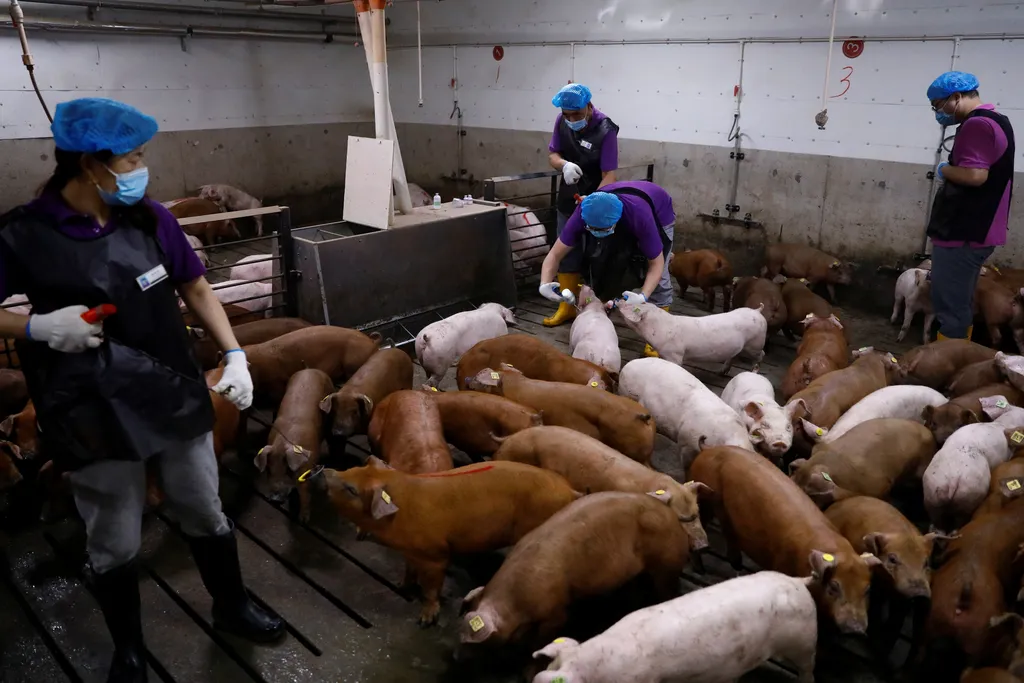In the rolling hills of China’s Jiaodong Peninsula, a humble pig breed has been quietly thriving, known for its resilience and superior meat quality. The Yantai Black pig (YT), a native to this region, has long been valued by local farmers for its coarse feeding tolerance, strong disease resistance, and impressive reproductive traits. Now, a recent study published in *Frontiers in Genetics* has shed new light on the genetic secrets behind these valuable characteristics, offering promising insights for the agricultural sector.
The research, led by Ming Qin from the Institute of Animal Science and Veterinary Medicine at the Yantai Academy of Agricultural Sciences, employed whole-genome resequencing to uncover the genetic diversity and selection signatures of the Yantai Black pig. By analyzing the genomes of 17 YT individuals from different lineages, the team identified key genetic regions and genes that contribute to the breed’s unique traits.
One of the most significant findings was the high genomic diversity of the Yantai Black pig compared to other Chinese partial indigenous pig populations and Western commercial pig populations. This diversity is crucial for the breed’s adaptability and resilience, traits that are increasingly valuable in an era of climate change and evolving disease threats.
“Our findings reveal that the Yantai Black pig possesses a rich genetic diversity, which underpins its remarkable adaptability and disease resistance,” Qin explained. “This genetic wealth is a treasure trove for breeders seeking to enhance the resilience and productivity of their herds.”
The study identified 321 selected regions between the Yantai Black pig and the Asian wild boar, encompassing 156 genes. Functional annotation analysis suggested that these genes are involved in growth, reproduction, and immune responses. Notably, the RBFOX3 and WDR27 genes were confirmed to be strongly positively selected in the Yantai Black pig’s breeding history.
These genetic insights could have significant commercial impacts. For instance, the identification of genes linked to teat number and body weight could aid in breeding programs aimed at improving litter size and overall productivity. Similarly, the genes associated with immune responses could help in developing more disease-resistant pig breeds, reducing the need for antibiotics and improving animal welfare.
Moreover, the study’s findings could influence conservation efforts. By understanding the genetic diversity and selection signatures of the Yantai Black pig, conservationists can better preserve this valuable genetic resource for future generations.
Looking ahead, this research could shape the future of pig breeding and conservation. “The insights gained from this study provide a solid foundation for the preservation, breeding, and utilization of the Yantai Black pig and its valuable genetic resources,” Qin noted. “This work not only enhances our understanding of the genetic basis of important economic traits in pigs but also offers practical tools for breeders and conservationists.”
As the agricultural sector grapples with the challenges of climate change, disease outbreaks, and the need for sustainable practices, the genetic insights from the Yantai Black pig offer a beacon of hope. By harnessing the power of genomics, farmers and breeders can develop more resilient, productive, and sustainable pig populations, ensuring food security and economic prosperity for years to come.

